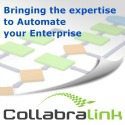
Tom Simmons, area vice president for the public sector at Citrix, recently spoke with WashingtonExec. Simmons has more than 25 years of information technology management experience, with a core emphasis on the public sector market.
He is an advocate for virtual computing, data center consolidation, cloud computing and mobility in the federal government and Department of Defense. He is also committed to providing secure and user-friendly telework solutions to government agencies. Simmons is invested in green IT initiatives, evidenced by Citrix’s annual sponsorship of Power IT Down Day. The program encourages government personnel to pledge to power down all electronic devices to save energy and promote healthy energy habits.
Before joining Citrix, Simmons served in senior public sector management positions with companies including Compaq, Trend Micro and MicroWarehouse.
Simmons spoke to WashingtonExec about new technology, BYOD, mobility, his interests and his career and position at Citrix, which operates its crporate and operational headquarters from Santa Clara, Calif., and Fort Lauderdale, Fla., respectively.
WashingtonExec: How is mobility redefining the way people work and the way IT departments support them?
Tom Simmons: Mobility makes “work” what you do, not where you go. It’s giving employees the ability to work anytime, anywhere and achieve a work/life balance like never before.
The exceptions of the old office-centric approach to IT are now the assumptions for today’s mobile architecture. Today, access is from multiple devices and wireless. Apps are increasingly selected from an app store and self-provisioned rather than installed and locked down on a PC. And, IT resources are “cloud first” and virtual workloads rather than on-premise and stove-piped.
Now, IT departments are also seeing the same flexibility. Through desktop and application virtualization, IT can standardize and centrally manage applications and IT services. They can also do their jobs from “anywhere” with remote access to systems to resolve issues or update access credentials for users or specific programs. We are also seeing a new balance between users and the IT department as innovative technology solutions empower users to work from any device while enabling IT departments the security and control they need to protect the network.
“Productivity is generally improved when a user has the option of using the device they like and know best.”
WashingtonExec: What types of emerging technologies are generating the most excitement for you and your company?
Tom Simmons: Right now, the explosion of mobile devices and the technology that agencies need to support them on their IT infrastructure is very intriguing, and for most agencies this is a huge challenge. At Citrix, we can help agencies navigate this transition with several innovative solutions. Our latest release of XenMobile is generating a lot of excitement. XenMobile, the industry’s first comprehensive enterprise mobility management (EMM) solution, was introduced by Citrix last year. In March we unveiled new features to further empower highly-regulated industries, such as government agencies, to boost mobile productivity and embrace device diversity while maintaining security. The new release offers secure and controlled device choice, speedy access to applications, and support for existing communication environments — without sacrificing security, control, or user experience — to bring mobile work to the next level. This new release also enables government agencies planning to phase out the BlackBerry to transition smoothly with secure, integrated and supported data and applications.
Desktop and application virtualization are also keys to many of the emerging technologies enabling mobility. Virtualized desktops and apps delivered securely to mobile devices enable employees to experience a seamless user experience, delivering the same look and feel of one’s computer, outside the office walls – thus mobilizing work while reducing costs by centralizing control and security for data. Citrix XenDesktop and XenApp, supported by the EMM in XenMobile, offer robust application and data delivery with the security credentials needed to meet government mandates.
Lastly, networking technologies in the arena of Software Defined Networks (SDN) bring the benefits of virtualization to the network infrastructure. Our ability to bring multiple network appliance workloads (load balancers, firewalls, anti-virus, network analytics, WAN optimization) to multi-tenet platforms enables SMART networks that are more content- and application-aware thus more agile and resilient in a world where new applications and mobile access needs to be quickly and securely implemented.
WashingtonExec: What is the biggest advantage to mobility in business and the biggest challenges? How does security present a challenge when utilizing mobile technology?
Tom Simmons: The biggest advantage is the ability to work anytime, anywhere, which helps to increase productivity and reduce costs for agencies. Whether it is traveling on business, out in the field or at a client site, mobility is enabling employees to get their job done even when their office desk is out of reach. The biggest challenge remains in embracing the change. Even though many policies allow for broader telework participation, there is still a cultural and managerial divide.
The security challenge remains a hurdle for many government agencies. While many application and virtual desktop solutions transfer data through the datacenter – leaving no resident information on the device – some agencies have specific criteria that needs to be answered. As we develop technology to tackle these hurdles, security will no longer become an issue with mobile technology. Additionally, the increasingly complex and frequent hacker attacks on agency networks are creating new and difficult challenges to overcome.
“Mine has been the journey of a sales guy. In my early career, I gravitated to information technology because of friends and colleagues in the field.”
WashingtonExec: What challenges do companies and schools face that use BYOD? Do the pros outweigh the cons?
Tom Simmons: BYOD can establish the ultimate in flexibility when it comes to device selection for the user population. In many organizations, this historically has been the domain of IT. Migrating to a centrally hosted and managed delivery infrastructure that is truly device agnostic can stress the experience and skills of yesterday’s IT departments. As more of the visionaries prove successful in the implementation of BYOD, best practices and “templates” will be more readily available.
The pros associated with BYOD are centered mostly on cost and user preference. More and more of the user population in government and education have their own laptops, PC’s, smartphones and tablets. Leveraging these devices in many cases will get the organization out of the device business (buying, provisioning, supporting and life cycling). Cost savings can also be substantial, even when a stipend for employees is part of the plan. Productivity is generally improved when a user has the option of using the device they like and know best.
WashingtonExec: What led you to pursue your current career?
Tom Simmons: Mine has been the journey of a sales guy. In my early career, I gravitated to information technology because of friends and colleagues in the field. Once there, I concentrated on the user side of the IT equation and targeted innovative solutions. At Western Union, I sold the early email solution called EasyLink in a company that made its reputation on Telex and cables (remember those days?). Hayes was the early company that put the power of computer communications in the remote office and the home. Compaq became the leader in PC, laptop and server sales as computing moved from the mainframe to distributed computing. Ten years ago, I saw in Citrix an opportunity to participate in a company with the vision to bring the benefits of centralized computing (from the days of the mainframe) with the advances in communications and networks to leverage user devices in a world where you can now work from anywhere.
In addition to the specific companies who’ve shaped my knowledge and skills relative to technology, my desire to lead great teams and make an impact on how government does business led me to by current career. Our ability to team with other technology vendors, systems integrators, reseller partners and the government customer is both personally and professionally rewarding.
WashingtonExec: What’s the best approach to maintaining a thriving company in an economic downturn?
Tom Simmons: The best approach is to understand and align with your customer. The past two years have been a challenge for most of our government customers as they struggle with budget cuts, government shut downs and the uncertainty that the future holds. Those companies who have weathered this storm and look to come out of it positioned for success have adjusted their expectations and approach to align with their customers and partners priorities, as well as their budgets. Regardless of the climate, the measure of a thriving company is to be relevant. The differentiators are not just in the technology or the customer supply chain, but often are in the culture of the company.
WashingtonExec: Aside from work or business, what fills your weekends and spare time?
Tom Simmons: What’s “spare time”? I do enjoy the benefits of being able to balance the requirements at work with family and personal interests and when not working, I have three primary pursuits. With two college kids who attend Virginia schools, my wife and I frequent sporting events and “parent visits” fairly often. A get-away home at Smith Mountain Lake offers a scenic, tranquil escape from the fast pace of D.C. And when the weather permits, I enjoy a good round of golf with friends or business associates who don’t mind the sporadic nature of my game, of late.


